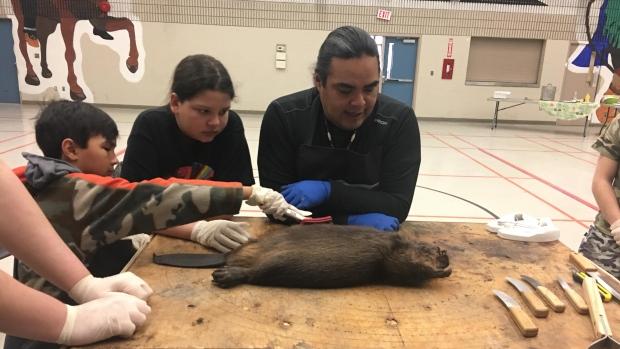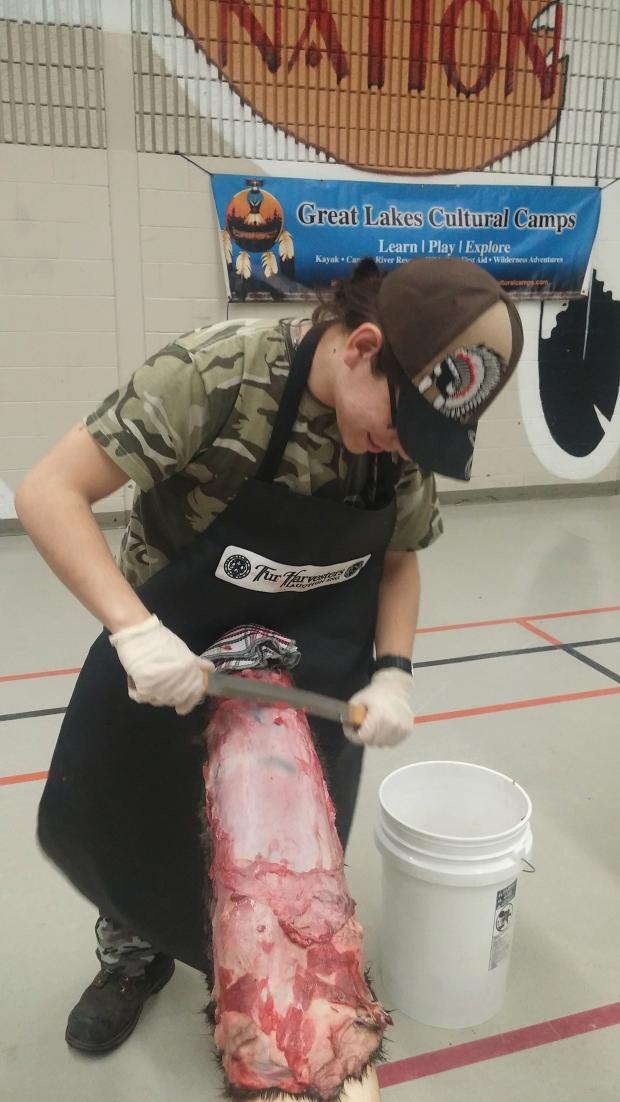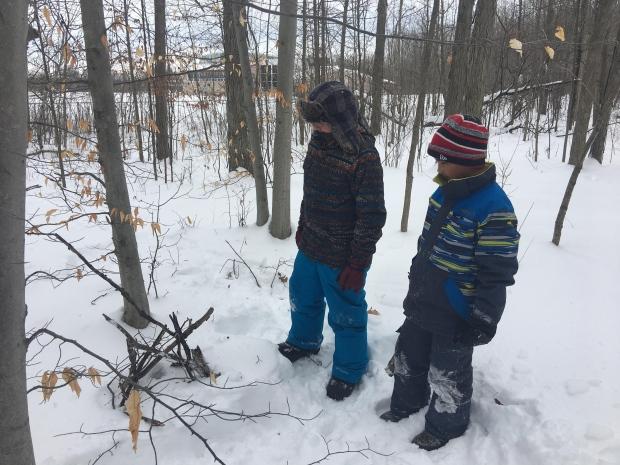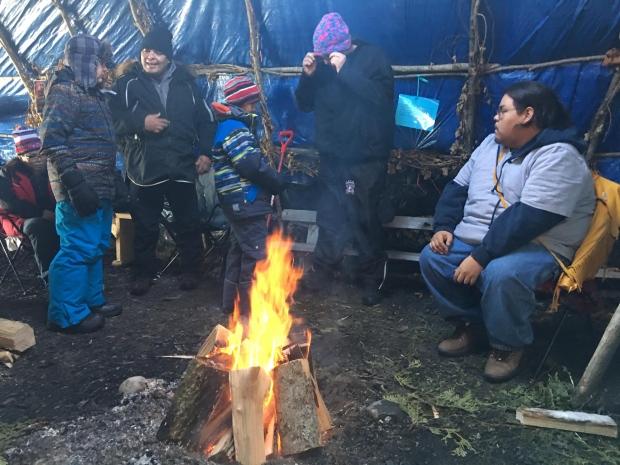 |
Canku Ota
|
 |
|
(Many Paths)
|
||
|
An Online Newsletter
Celebrating Native America
|
||
|
March 2018 - Volume
16 Number 3
|
||
|
|
||
|
Chippewas Of Thames
Youth Learn Winter Skills To Live Off The Land
|
||
|
by Ashley Albert - CBC
News
|
||
|
The two-day camp
taught the importance of Anishinaabe traditions, including how to
skin a beaver
Young people from Chippewas of the Thames First Nation participated in a cultural camp where they learned first-hand the importance of the Anishinaabe traditions of trapping and hunting in the winter. The hands-on, two-day camp taught life skills, including how to make and set-up traps in a humane way and track animals. But the best part, campers said, was learning to skin a beaver. "I made a bit of a mess. It was a new experience for me and I definitely learned something," said camper Jeremy Hendrick.
The campers were taught the lessons through storytelling and sharing thanks to Great Lakes Cultural Camps, a family-owned business from Wikwemikong First Nation on Manitoulin Island. Kyle French, youth justice advocacy coordinator for Chippewa, planned the camp in response to questions from young people asking to learn more about hunting and trapping. "Being able to look at a track and say oh look a rabbit or a muskrat. Something as simple as that, if it really came down to it for survival you really need," said French. He also wants to show Elders and knowledge keepers in Chippewa that young people are out there willingly to learn these teachings. Life skills As five youth gathered round a recently trapped beaver, Maheengung Shawanda, told them the process of skinning starts by looking at the sacredness of the animal. The founder and director of Great Lakes Cultural Camps explained learning how to skin a beaver takes time and patience. "This way of life teaches us about patience. And it helps us to slow things down, and it grounds us," said Shawanda, skills that are useful in everyday life.
More camps planned Besides skinning the beaver, campers learned how to make and set up snares, placing sticks around the burrow of an animal. "When I have kids, I want to teach them what I learned. Because not a lot of us have knowledge about our culture and all of that." Tayden Grosbeck said.
The campers enjoyed the cultural teachings and plan to put them to use in their lives. "I go out hunting every once in a while with my brother so we could set snares there and build our own traps," said Johnathan Week'es who hopes more youth will come out to the next camp session. Organizers said there will be other camps planned based on Anishinaabe seasonal teachings, including taping for maple syrup and an Indigenous style games camp. The hope is that seeing the young people engaged in land-based teachings will encourage the Elders and knowledge keepers to come out and share their knowledge at future camps. |
||||||||
|
|
|
|
||
|
|
||
| Canku Ota is a free Newsletter celebrating Native America, its traditions and accomplishments . We do not provide subscriber or visitor names to anyone. Some articles presented in Canku Ota may contain copyright material. We have received appropriate permissions for republishing any articles. Material appearing here is distributed without profit or monetary gain to those who have expressed an interest. This is in accordance with Title 17 U.S.C. Section 107. | ||
|
Canku Ota is a copyright ©
2000 - 2018 of Vicki Williams Barry and Paul Barry.
|
||
 |
 |
|
|
The "Canku
Ota - A Newsletter Celebrating Native America" web site and
its design is the
|
||
|
Copyright ©
1999 - 2018 of Paul C. Barry.
|
||
|
All Rights Reserved.
|
||



